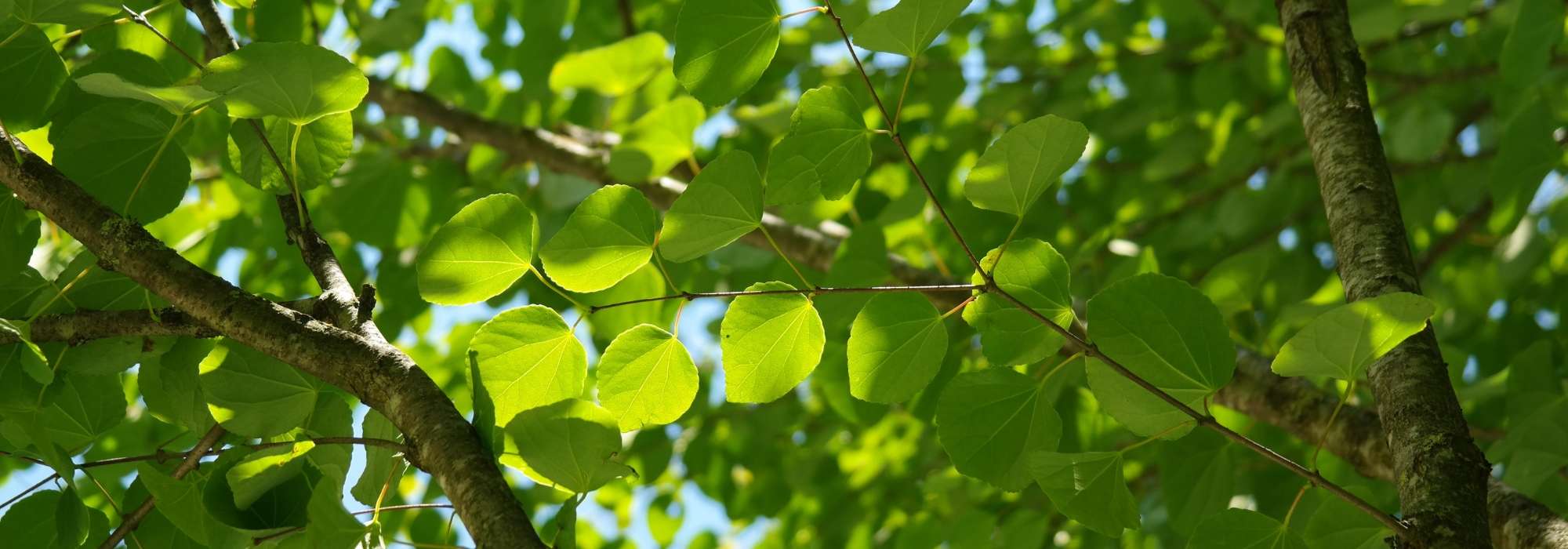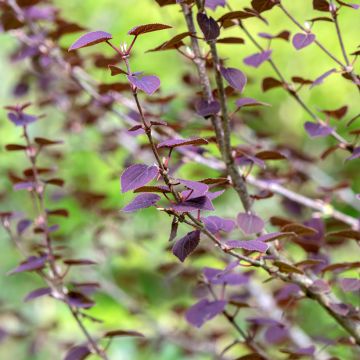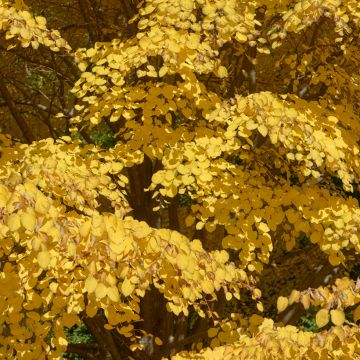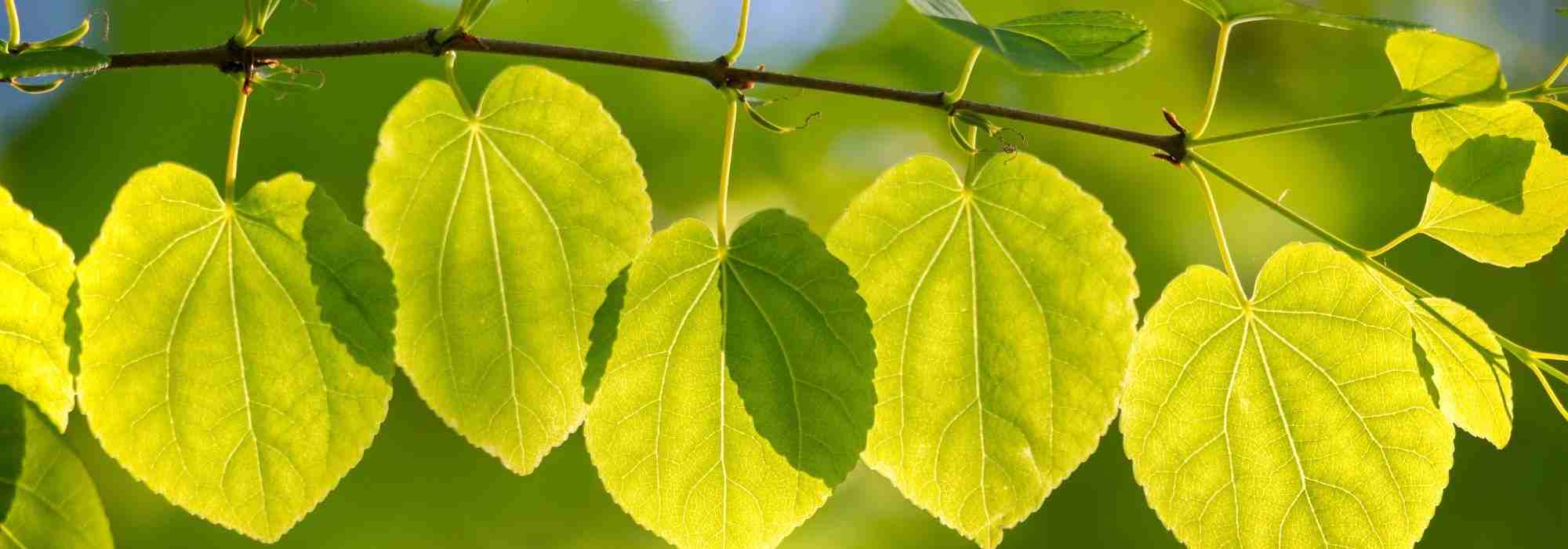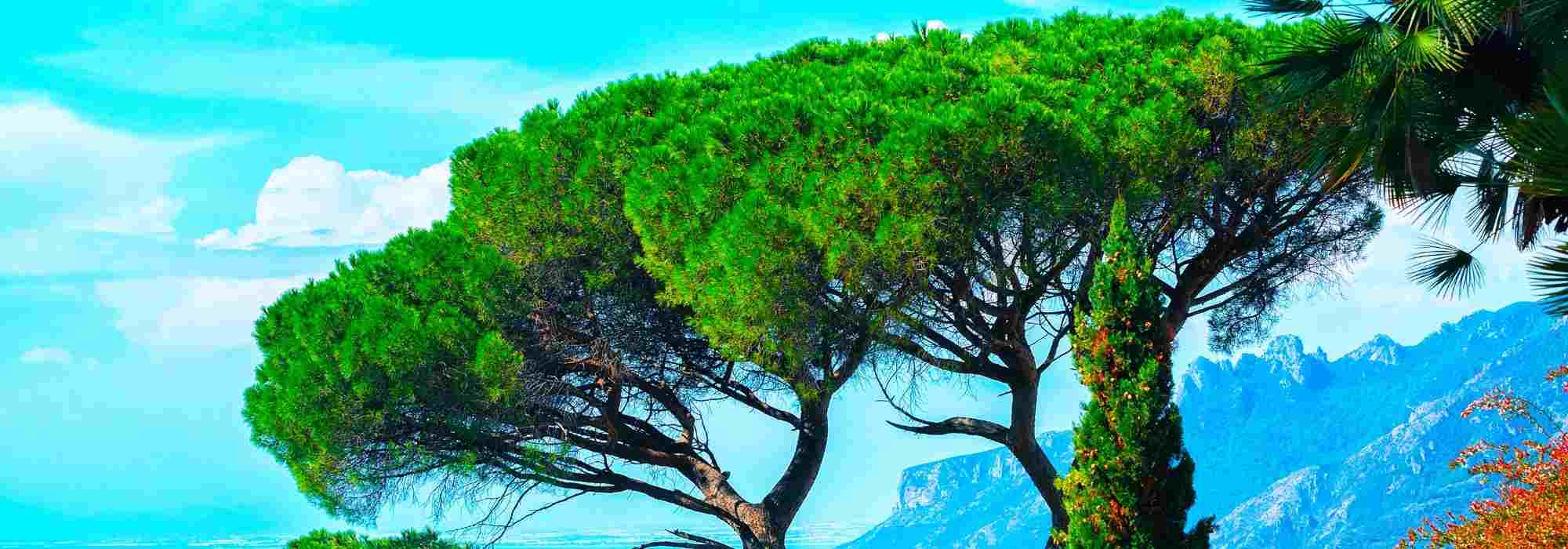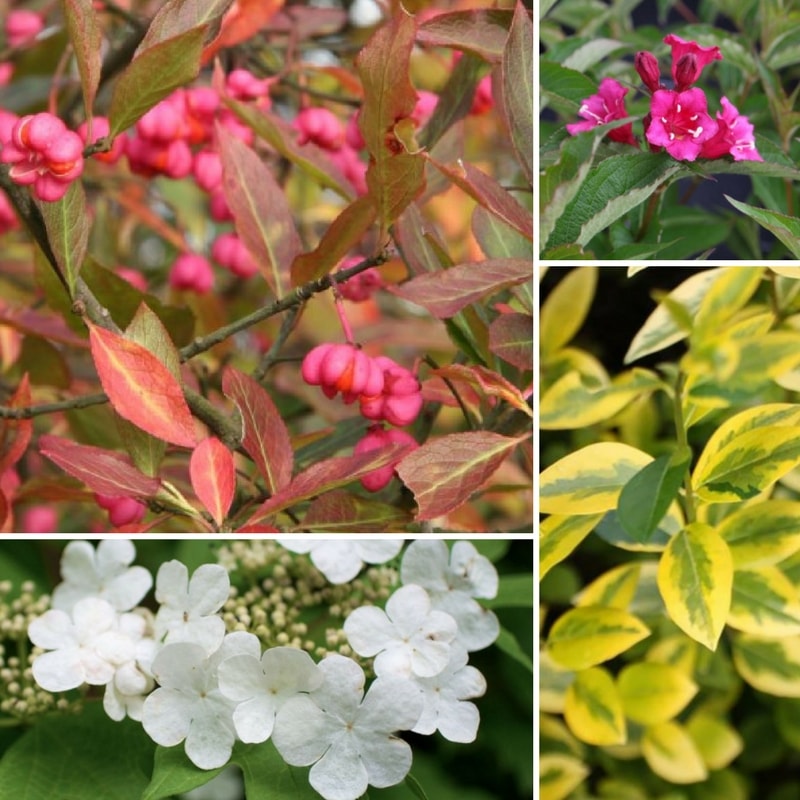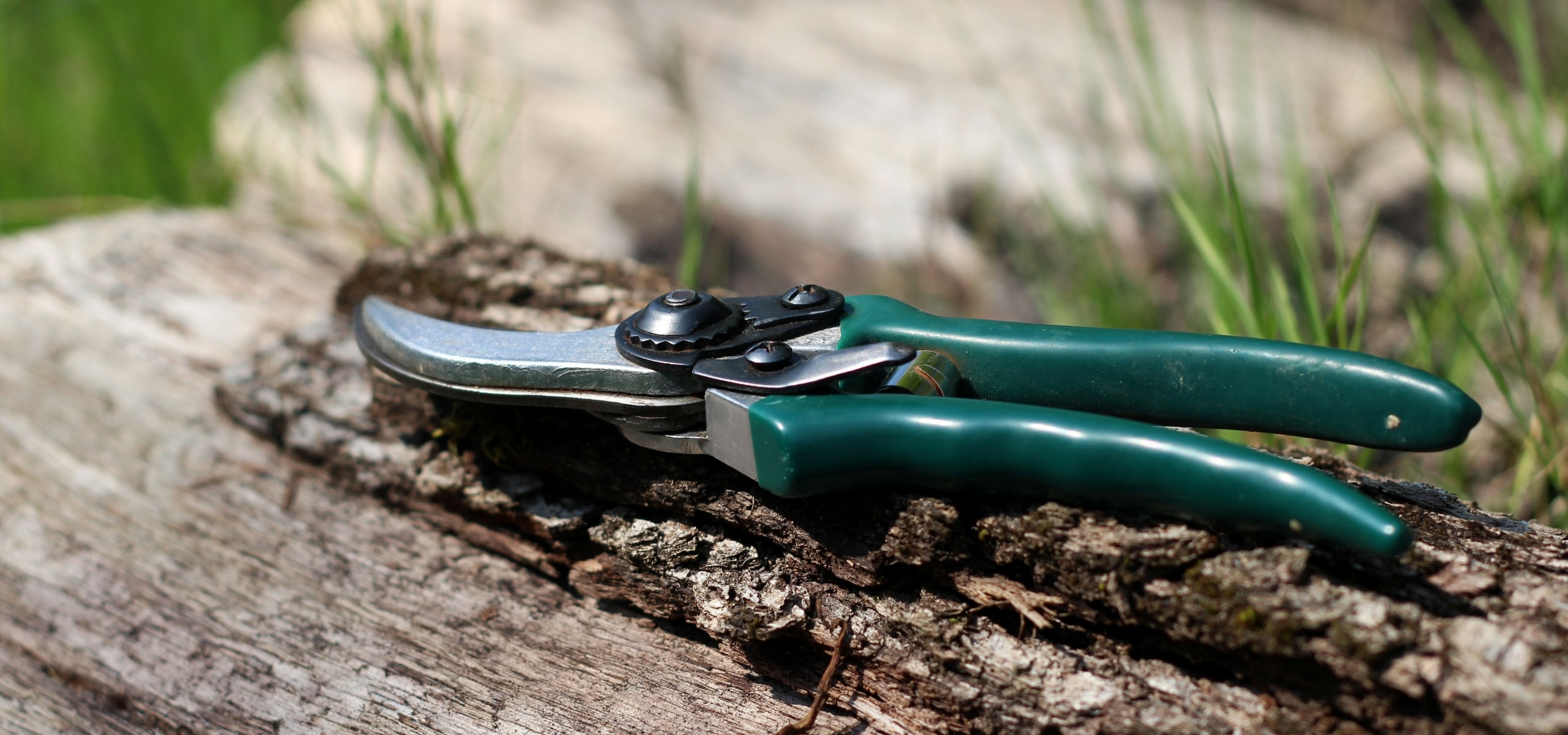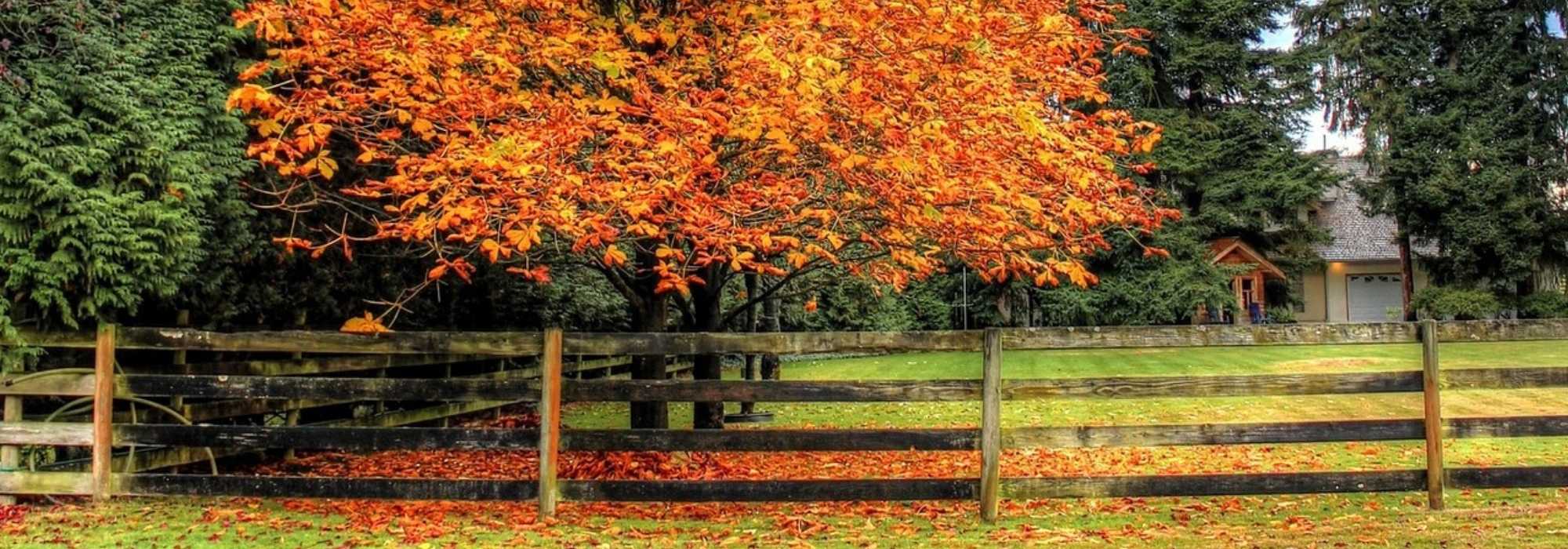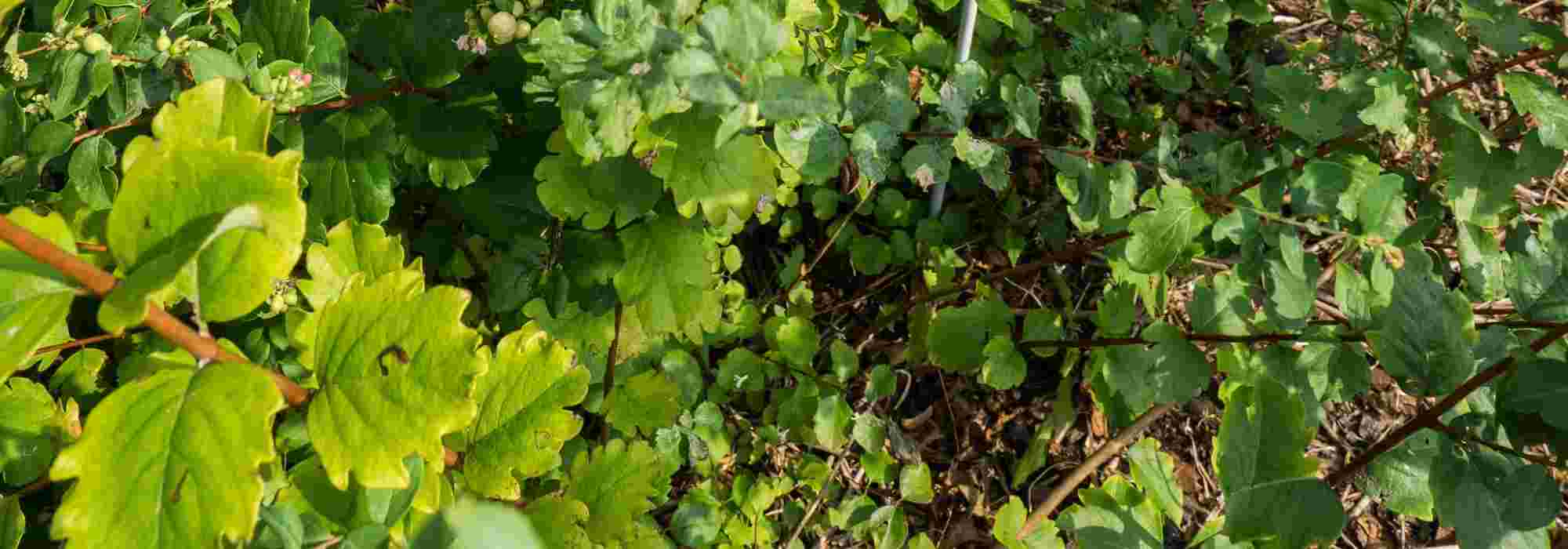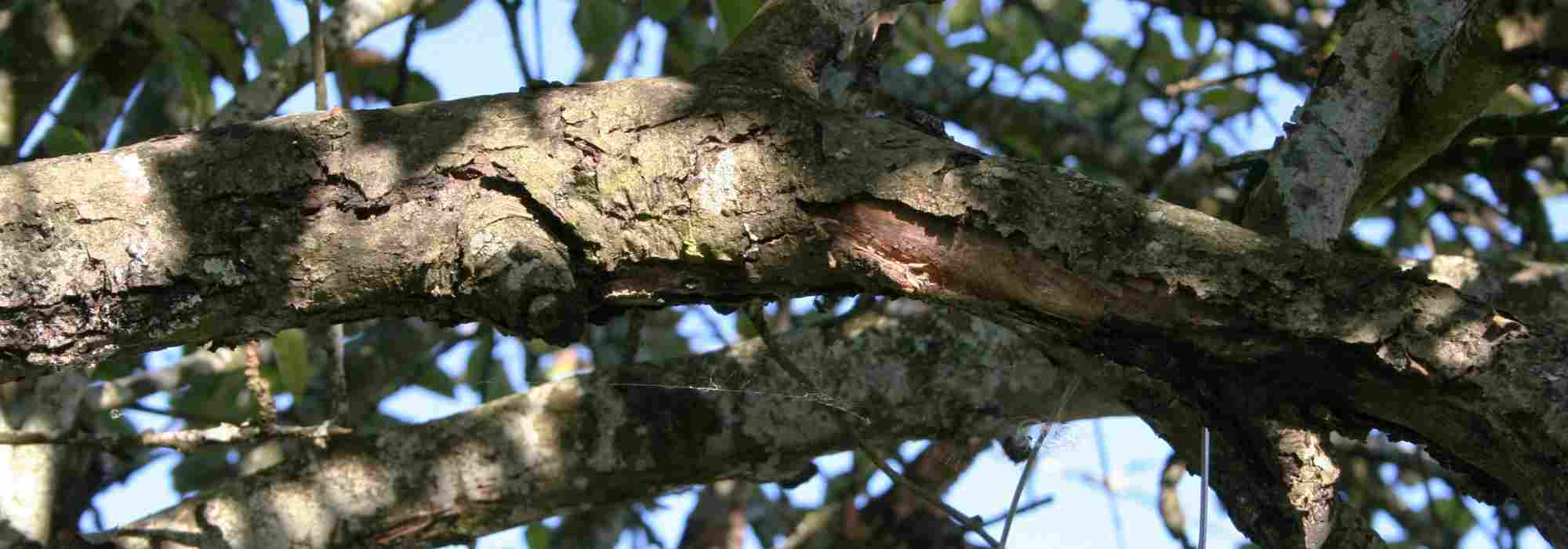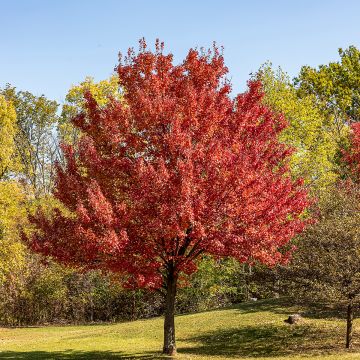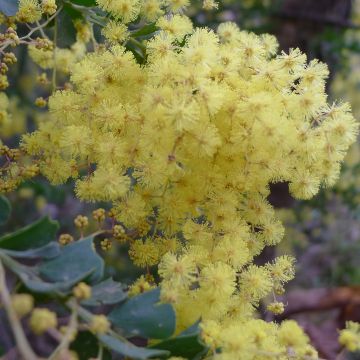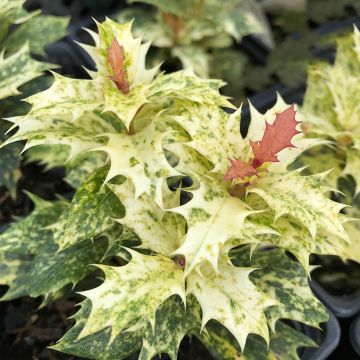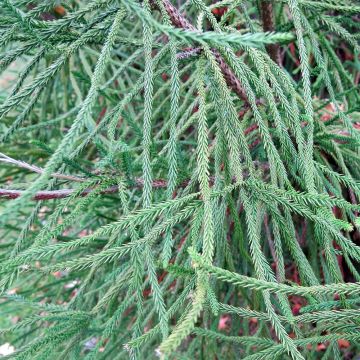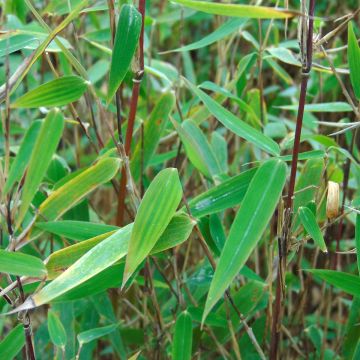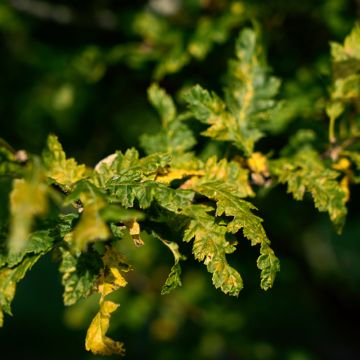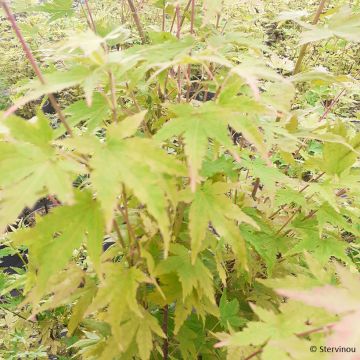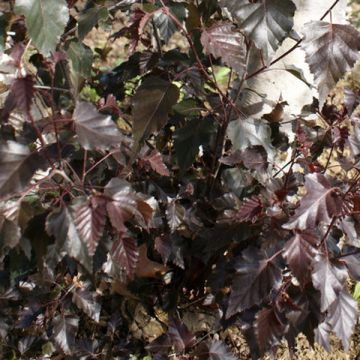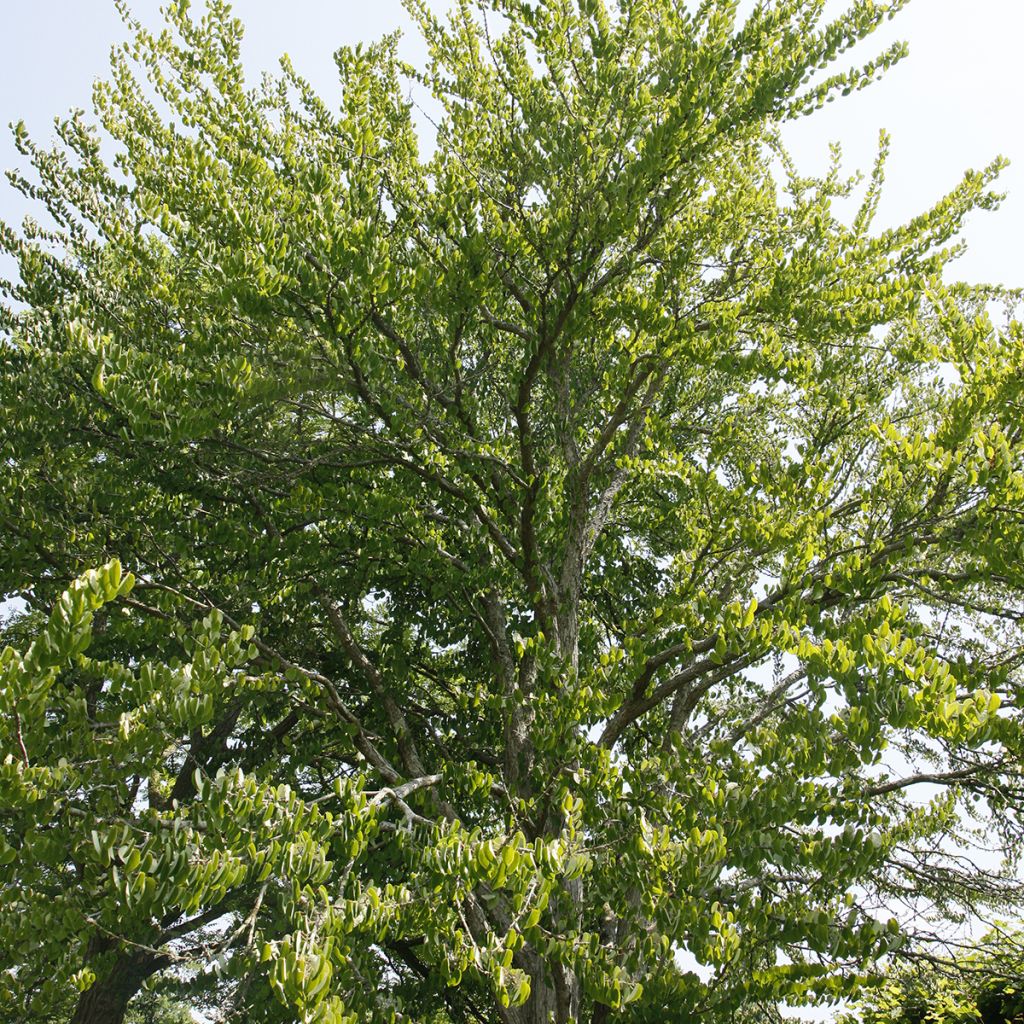

Cercidiphyllum magnificum - Katsura tree
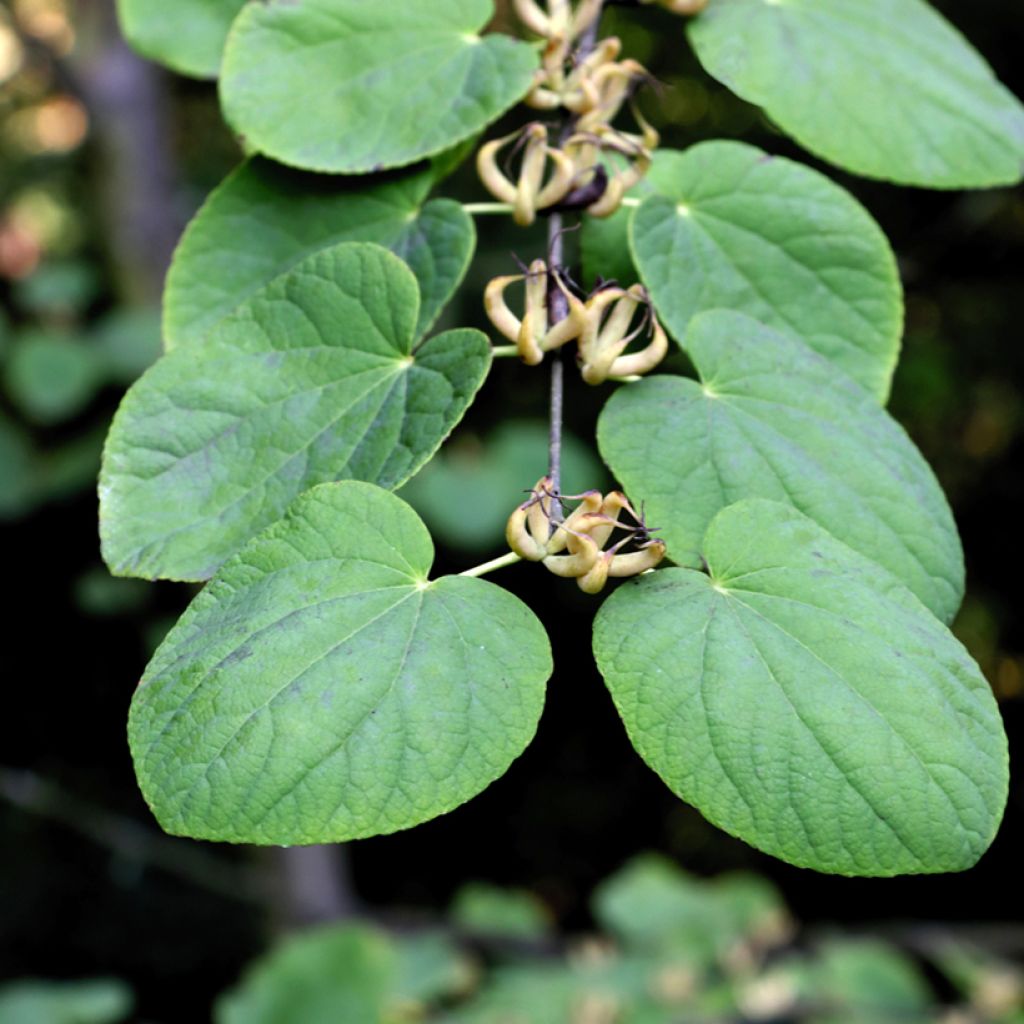

Cercidiphyllum magnificum - Katsura tree
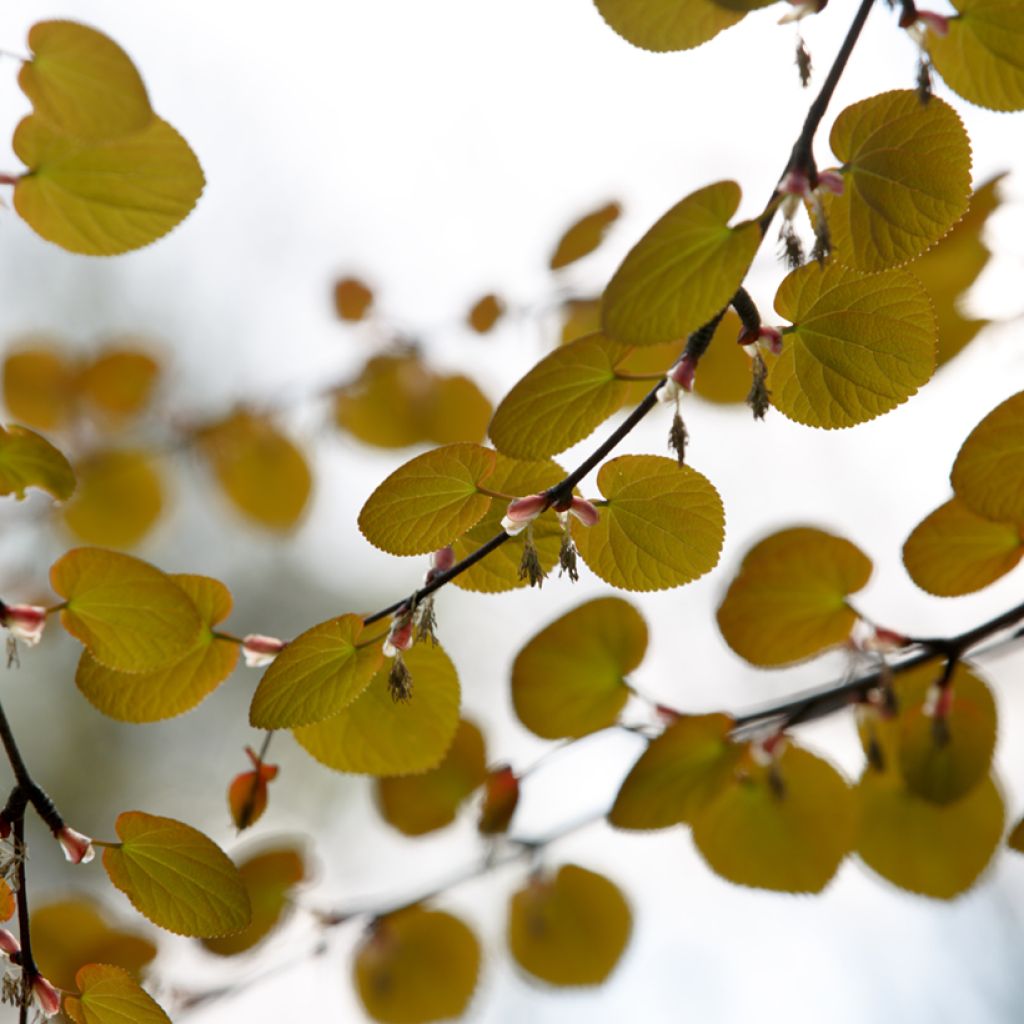

Cercidiphyllum magnificum - Katsura tree
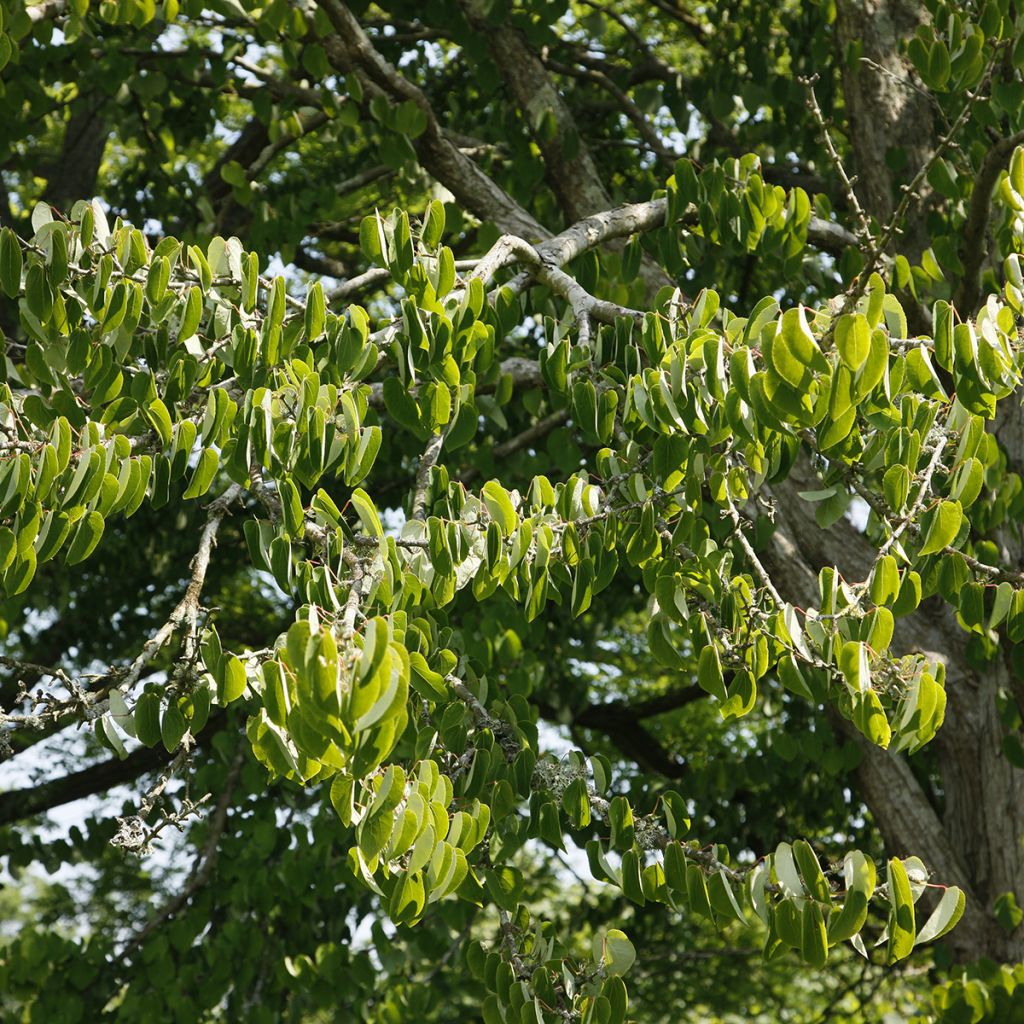

Cercidiphyllum magnificum - Katsura tree
Cercidiphyllum magnificum - Katsura tree
Cercidiphyllum magnificum
Large-leaf Katsura, Magnificent Katsura Tree
It arrived in good condition, but with few branches and above all, a very underdeveloped root system. I planted it, but I will monitor it very closely. I had already planted a cercidiphyllum japonicum, but it had a much better branch structure and root system; it is now splendid... So, I am doubtful about the "magnificum".
Michèle, 09/10/2024
Special offer!
Receive a €20 voucher for any order over €90 (excluding delivery costs, credit notes, and plastic-free options)!
1- Add your favorite plants to your cart.
2- Once you have reached €90, confirm your order (you can even choose the delivery date!).
3- As soon as your order is shipped, you will receive an email containing your voucher code, valid for 3 months (90 days).
Your voucher is unique and can only be used once, for any order with a minimum value of €20, excluding delivery costs.
Can be combined with other current offers, non-divisible and non-refundable.
Home or relay delivery (depending on size and destination)
Schedule delivery date,
and select date in basket
This plant carries a 24 months recovery warranty
More information
We guarantee the quality of our plants for a full growing cycle, and will replace at our expense any plant that fails to recover under normal climatic and planting conditions.
Does this plant fit my garden?
Set up your Plantfit profile →
Description
The Cercidiphyllum magnificum, like its cousin, the C. japonicum, has the curious name of caramel tree, which is explained by the light fragrance emitted by its foliage in autumn. Its almost round, or heart-shaped leaves emerge in a bronze hue, before turning green. In autumn, they turn yellow, sometimes even pink-purple. A compact tree with relatively fast growth, it is well suited to small gardens in cold or humid regions. However, it will not thrive in the south, as it dislikes drought.
The Cercidiphyllum magnificum is the second species in the very limited family of Cercidiphyllaceae. This Japanese species grows in a limited geographical area, confined to the subalpine zone of the Japanese Alps, on the island of Honshu (the large central island of Japan). It is found notably around the city of Nikko, a famous municipality in Japan that extends from 200 to over 2400 metres above sea level! Extremely hardy, the C. Magnificum rarely exceeds 10 metres in height in its natural habitat, and often develops with multiple trunks. However, it can also grow with a single trunk, resulting in a small tree with a pyramidal or conical habit. It is generally found in its habitat alongside other woody plants, such as the epaulette tree (Pterostyrax hispida), which is also rare in our gardens, the Acer shirazawanum which has produced some beautiful horticultural varieties, and the Erman's birch.
The C. magnificum was introduced to the West in the form of seeds sent by the University of Tokyo to the famous Arnold Arboretum, a gigantic tree collection on 114 hectares affiliated with Harvard University in Boston. This relatively recent introduction explains why there are few old specimens outside of Japan. One of them, planted in 1975 in a Scottish botanical garden, reached a height of 12 metres in 2012, but most often, this species reaches a height of 6–8 metres, with a width of 4–5 metres in our latitudes. Its natural hardiness has allowed it to be planted as far as Scandinavia, but on the other hand, it is not suitable for our Mediterranean regions with their much drier summers.
This tree, which is more compact than the C. japonicum, can be recognised by its smoother trunk, of a beautiful brown colour, which only develops cracks when it reaches a respectable diameter. It also has larger leaves than its cousin, with relatively variable shapes depending on the individuals. Some are slightly heart-shaped, others kidney-shaped, with a well-rounded tip and a more or less cordate base (forming two rounded lobes on either side of the petiole), or even almost round. When they emerge in spring, the young leaves have a bronze colour, which then disappears to turn green. When autumn arrives, they turn yellow, sometimes even pink-purple depending on the individuals and the soil, creating a magnificent scene before they fall.
As this tree is dioecious, the plants are either male or female, but in both cases, the flowering is too insignificant to be ornamental. Devoid of petals, the flowers appear early, along with the leaves, and are reddish in colour.
This rare Cercidiphyllum will please enthusiasts of autumn colours and graphic foliage. Above all, it will allow residents of the coldest areas to confidently plant a caramel tree, while the C. japonicum is less resistant to cold, especially spring frosts. It can be planted as a specimen on a lawn, but will be more at home in a border, on the edge of large trees. The Hamamelis vernalis Washington Park will be a good companion, with its winter purple blooms and magnificent autumn colours, ranging from yellow to orange and red. The Carolina silverbell tree (Halesia carolina) would also thrive in similar climatic conditions, with its decorative white spring flowers and beautiful autumn colours. And to extend the flowering period and enjoy a range of almost infinite flower shapes and colours, there's nothing like the beautiful Camellias with their beautiful dark green foliage and romantically charming flowers.
Plant habit
Flowering
Foliage
Botanical data
Cercidiphyllum
magnificum
Cercidiphyllaceae
Large-leaf Katsura, Magnificent Katsura Tree
East Asia
Other Cercidiphyllum
View all →Planting and care
The cercidiphyllum magnificum is easy to grow in most climates, in deep soil, except in coastal areas or Mediterranean regions. It requires moisture and does not tolerate (excessively) hot and dry summers. This tree has a fairly rapid growth if the soil suits it and should be planted in autumn or winter. Be sure to choose its location carefully, as it does not like to be moved. It thrives in a fresh, humus-bearing, fertile soil, preferably acidic to achieve beautiful foliage colourations, but it will also grow in neutral to alkaline soil, in non-burning sun or partial shade. This caramel tree is much hardier than C. japonicum and requires no special maintenance.
Planting period
Intended location
Care
Planting & care advice
-
, onOrder confirmed
Reply from on Promesse de fleurs
Similar products
Haven't found what you were looking for?
Hardiness is the lowest winter temperature a plant can endure without suffering serious damage or even dying. However, hardiness is affected by location (a sheltered area, such as a patio), protection (winter cover) and soil type (hardiness is improved by well-drained soil).

Photo Sharing Terms & Conditions
In order to encourage gardeners to interact and share their experiences, Promesse de fleurs offers various media enabling content to be uploaded onto its Site - in particular via the ‘Photo sharing’ module.
The User agrees to refrain from:
- Posting any content that is illegal, prejudicial, insulting, racist, inciteful to hatred, revisionist, contrary to public decency, that infringes on privacy or on the privacy rights of third parties, in particular the publicity rights of persons and goods, intellectual property rights, or the right to privacy.
- Submitting content on behalf of a third party;
- Impersonate the identity of a third party and/or publish any personal information about a third party;
In general, the User undertakes to refrain from any unethical behaviour.
All Content (in particular text, comments, files, images, photos, videos, creative works, etc.), which may be subject to property or intellectual property rights, image or other private rights, shall remain the property of the User, subject to the limited rights granted by the terms of the licence granted by Promesse de fleurs as stated below. Users are at liberty to publish or not to publish such Content on the Site, notably via the ‘Photo Sharing’ facility, and accept that this Content shall be made public and freely accessible, notably on the Internet.
Users further acknowledge, undertake to have ,and guarantee that they hold all necessary rights and permissions to publish such material on the Site, in particular with regard to the legislation in force pertaining to any privacy, property, intellectual property, image, or contractual rights, or rights of any other nature. By publishing such Content on the Site, Users acknowledge accepting full liability as publishers of the Content within the meaning of the law, and grant Promesse de fleurs, free of charge, an inclusive, worldwide licence for the said Content for the entire duration of its publication, including all reproduction, representation, up/downloading, displaying, performing, transmission, and storage rights.
Users also grant permission for their name to be linked to the Content and accept that this link may not always be made available.
By engaging in posting material, Users consent to their Content becoming automatically accessible on the Internet, in particular on other sites and/or blogs and/or web pages of the Promesse de fleurs site, including in particular social pages and the Promesse de fleurs catalogue.
Users may secure the removal of entrusted content free of charge by issuing a simple request via our contact form.
The flowering period indicated on our website applies to countries and regions located in USDA zone 8 (France, the United Kingdom, Ireland, the Netherlands, etc.)
It will vary according to where you live:
- In zones 9 to 10 (Italy, Spain, Greece, etc.), flowering will occur about 2 to 4 weeks earlier.
- In zones 6 to 7 (Germany, Poland, Slovenia, and lower mountainous regions), flowering will be delayed by 2 to 3 weeks.
- In zone 5 (Central Europe, Scandinavia), blooming will be delayed by 3 to 5 weeks.
In temperate climates, pruning of spring-flowering shrubs (forsythia, spireas, etc.) should be done just after flowering.
Pruning of summer-flowering shrubs (Indian Lilac, Perovskia, etc.) can be done in winter or spring.
In cold regions as well as with frost-sensitive plants, avoid pruning too early when severe frosts may still occur.
The planting period indicated on our website applies to countries and regions located in USDA zone 8 (France, United Kingdom, Ireland, Netherlands).
It will vary according to where you live:
- In Mediterranean zones (Marseille, Madrid, Milan, etc.), autumn and winter are the best planting periods.
- In continental zones (Strasbourg, Munich, Vienna, etc.), delay planting by 2 to 3 weeks in spring and bring it forward by 2 to 4 weeks in autumn.
- In mountainous regions (the Alps, Pyrenees, Carpathians, etc.), it is best to plant in late spring (May-June) or late summer (August-September).
The harvesting period indicated on our website applies to countries and regions in USDA zone 8 (France, England, Ireland, the Netherlands).
In colder areas (Scandinavia, Poland, Austria...) fruit and vegetable harvests are likely to be delayed by 3-4 weeks.
In warmer areas (Italy, Spain, Greece, etc.), harvesting will probably take place earlier, depending on weather conditions.
The sowing periods indicated on our website apply to countries and regions within USDA Zone 8 (France, UK, Ireland, Netherlands).
In colder areas (Scandinavia, Poland, Austria...), delay any outdoor sowing by 3-4 weeks, or sow under glass.
In warmer climes (Italy, Spain, Greece, etc.), bring outdoor sowing forward by a few weeks.






























